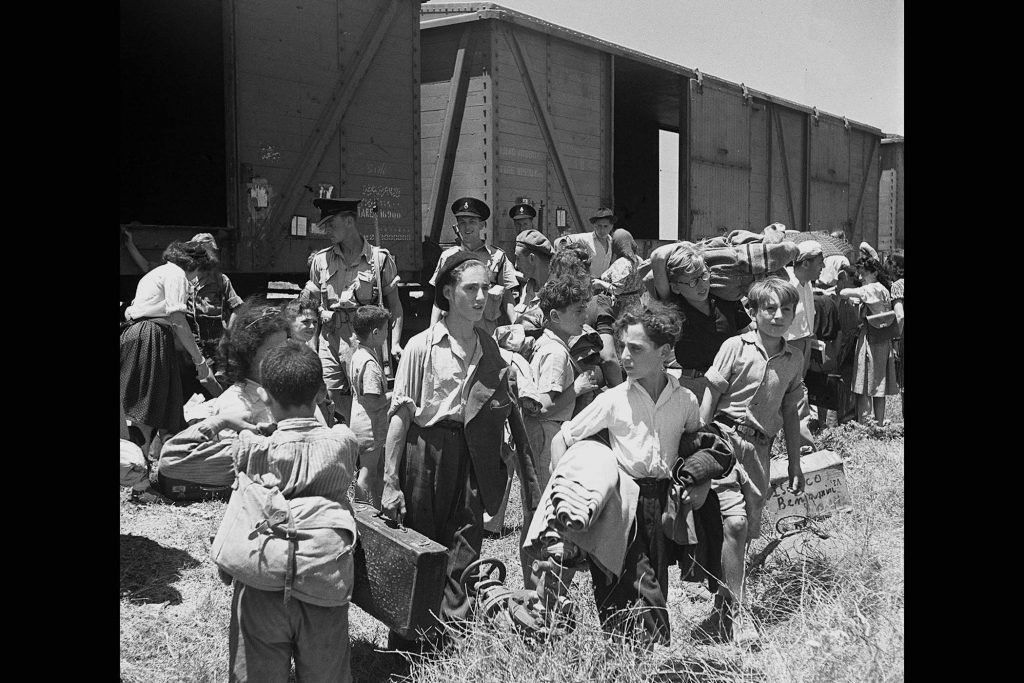
After the Holocaust
More than 200,000 Jewish Holocaust survivors languished in displaced persons camps in western Europe in 1948. Others had returned home and attempted to reconstitute their communities. Hundreds of thousands of others had started new lives in countries far away from the places they had grown up. Their lives were shattered, loved ones murdered, homes plundered, and the infrastructure of Jewish life destroyed.
Many strove to rebuild their lives in the newly proclaimed State of Israel. Between 1948 and 1951, nearly 700,000 Jews from all over the world, including many Holocaust survivors, arrived in Israel, doubling the country’s population in a short span of time.
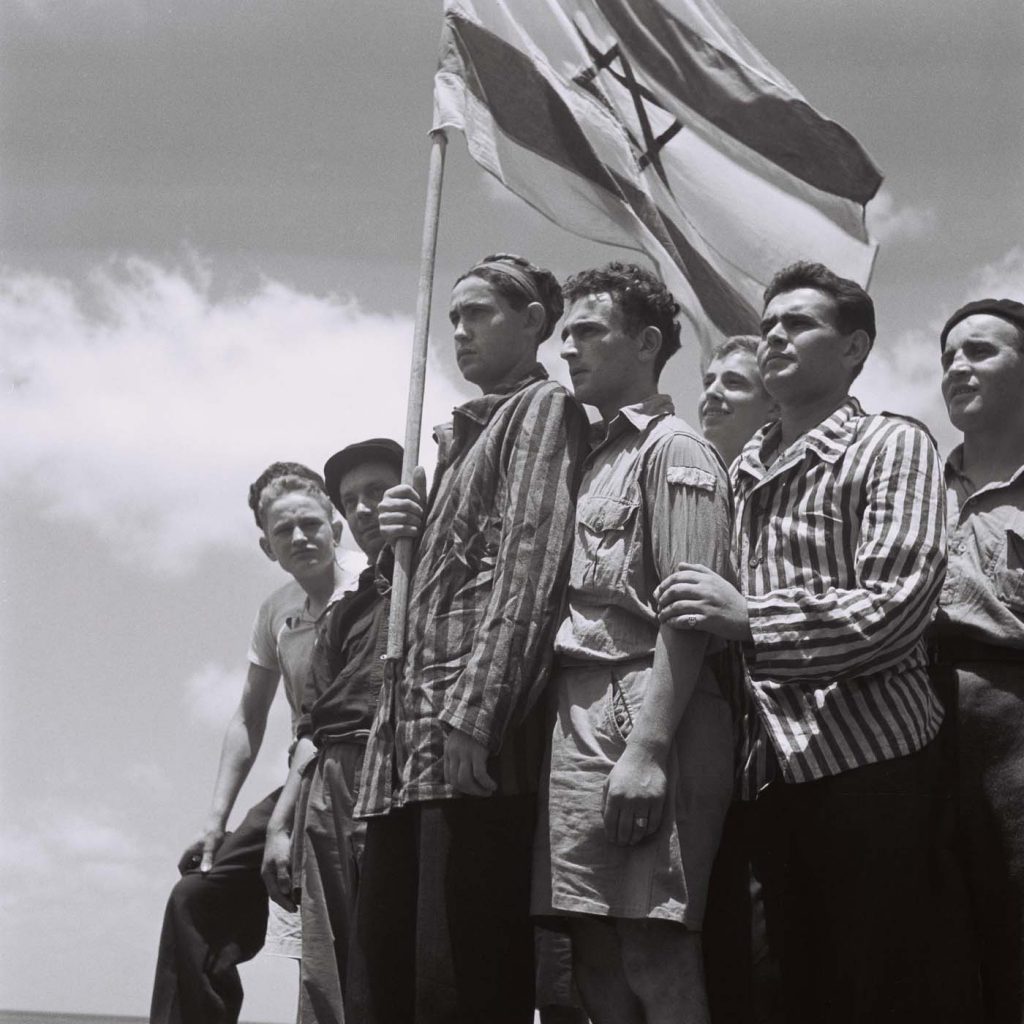
Israel in Crisis
Israel plunged into an economic crisis, forcing the population into an austerity program at a time of greatest need to address the dire situation of the impoverished, ill, and traumatized survivors. In the Diaspora, Jewish organizations prioritized the rehabilitation of survivors and the reconstruction of Jewish life while confronting financial and political challenges. Jews in and outside Israel desperately needed resources to assist the She’erit ha’Pletah, the surviving remnant. They prepared for the repercussions of the physical, emotional, and material hardships that the Jewish survivors had sustained during the Holocaust.
Photo: A group of former Buchenwald inmates on board the refugee ship “Mataroa” in Haifa port.
ניצולי שואה ממחנה בוכנוואלד, מגיעים לנמל חיפה.
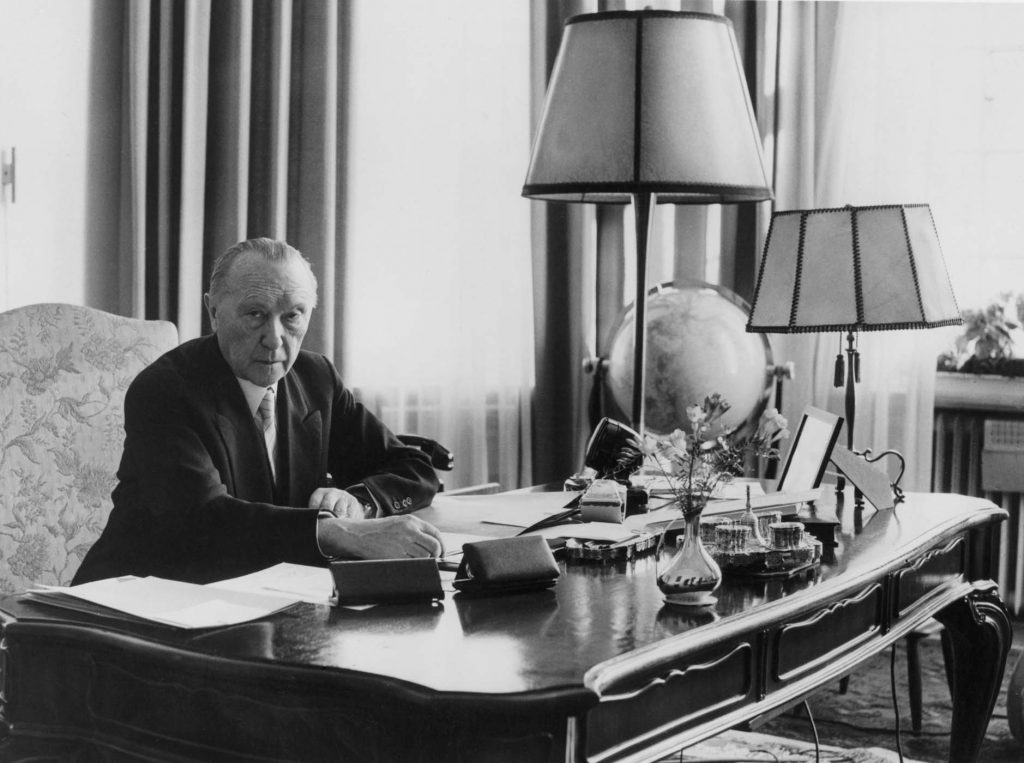
Adenauer’s Landmark Speech
In September 1951, Konrad Adenauer, the first Chancellor of the Federal Republic of Germany, delivered a landmark announcement at the Bundestag. This historic statement ensured that the German people would take responsibility for the crimes of the past, advanced fragile relations between Germany and the State of Israel and with world Jewry and launched a formal endeavor to discuss compensation.
Photo: Chancellor Konrad Adenauer at his desk in the Palais Schaumburg, August 2, 1960. Credit: AKG Images
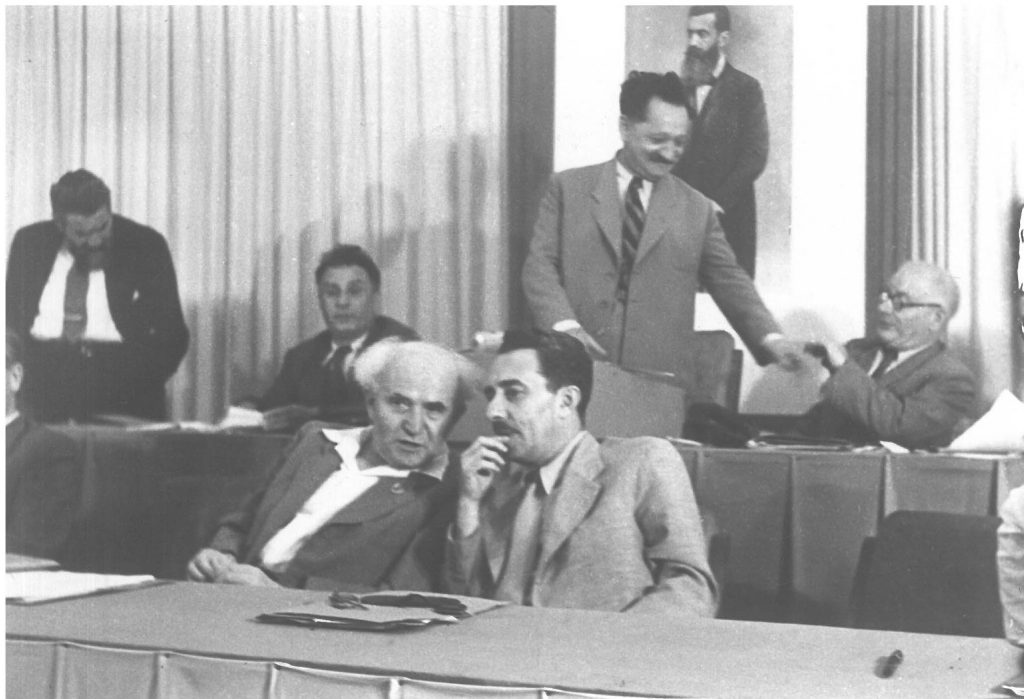
The Debate Over Compensation
However, the planned negotiations triggered intense debates in Israel about accepting what some called “blood money.” David Ben Gurion, Israel’s Prime Minister, implored the Knesset to authorize the negotiations and not allow the perpetrators to both murder the Jews and acquire their property; essentially to escape liability for the crimes they committed.
Jewish leaders had been pursuing the idea of compensation claims already during the Holocaust, anticipating the end of the war and the urgency to assist survivors. Israel had been repeatedly pressing for reparations as it became a refuge for about 500,000 Nazi victims since 1933.
Photo: First row from left: Prime Minister David Ben Gurion sitting next to Foreign Minister Moshe Sharett in the Knesset
Credit: Ben-Gurion Heritage Archives, Ben-Gurion University of the Negev
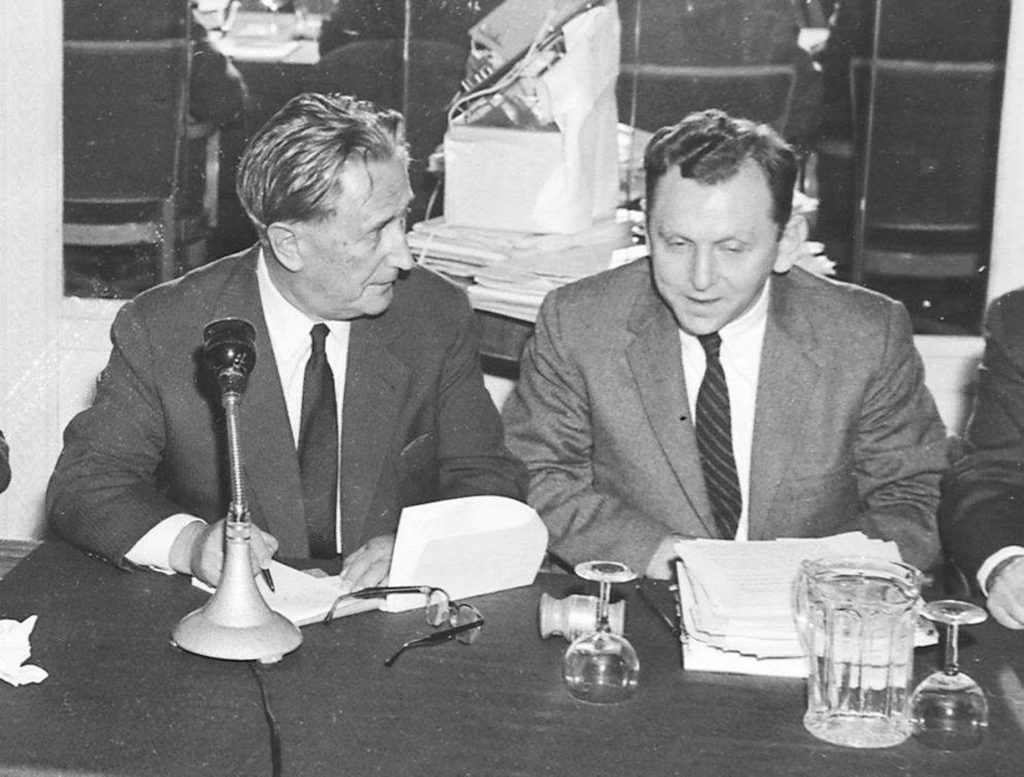
Formation of the Claims Conference
Following Adenauer’s statement in the Bundestag, it took leadership, cooperation, persistence, vision, and diplomacy to bring together representatives of 23 international Jewish organizations to convene in New York City on October 25-26, 1951 to form a unified front – the Conference on Jewish Material Claims Against Germany, in short: the Claims Conference. Nahum Goldmann, a leading Jewish statesman, a refugee from Nazi Germany, stood at its helm. The new organization would support Israel’s demands and negotiate on behalf of Jewish survivors living outside Israel.
Both the Claims Conference and State of Israel agreed, nothing could compensate for the immense human destruction. Thus, the claims focused on material reparations only.
Photo: Saul Kagan, founding executive director of the Claims Conference, right, talking to Nahum Goldmann, founder and longtime president of the World Jewish Congress, 1958.
Credit: Claims Conference
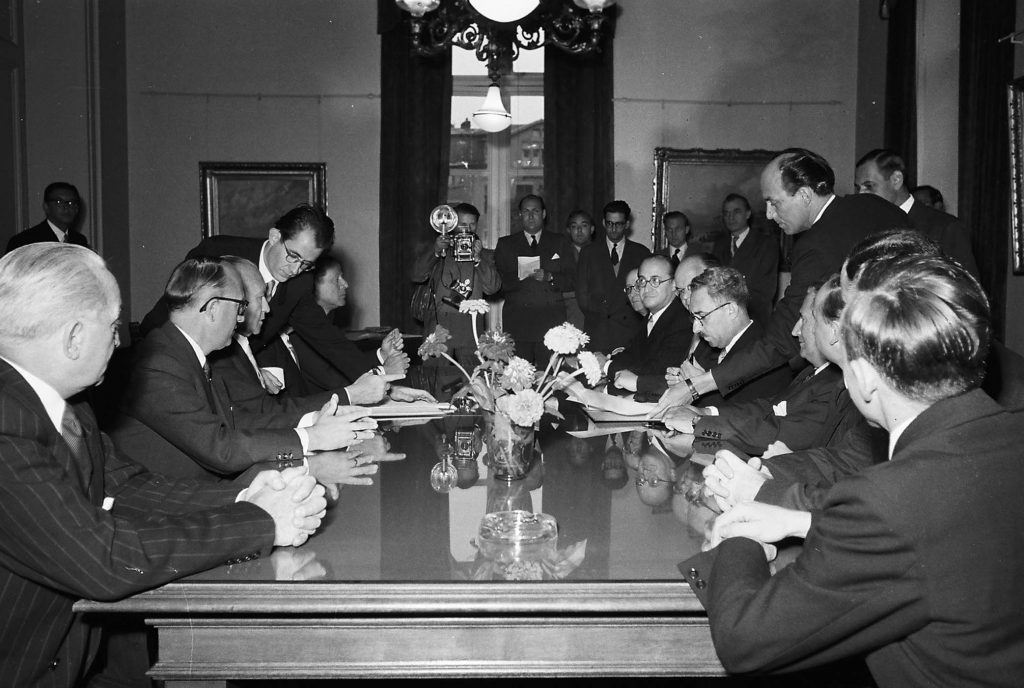
The Negotiations Begin
The talks between West Germany and the State of Israel and separately West Germany and the Claims Conference, commenced on March 21, 1952 in Wassenaar, the Netherlands. For the first time in history, entities that had not existed at the time of the war engaged in negotiations for reparations. The deliberations culminated in the signing of accords in Luxembourg on September 10, 1952. The turbulent discussions resulted in West Germany’s obligation to provide DM 3 billion in goods and services to Israel. The reparation payments boosted Israel’s economic development, thereby earmarking necessary funds for housing, food, and absorption of many Holocaust survivors. In the two-protocol agreement signed with the Claims Conference, the West German government committed to enact legislation to compensate directly Jewish Holocaust survivors and agreed to pay to the Claims Conference DM 450 million for the relief, rehabilitation, and resettlement of Jewish survivors living outside Israel.
Photo: The signing of the Luxembourg Agreements, September 10th 1952. Moshe Sharett ready to sign.
Credit: Bundesregierung
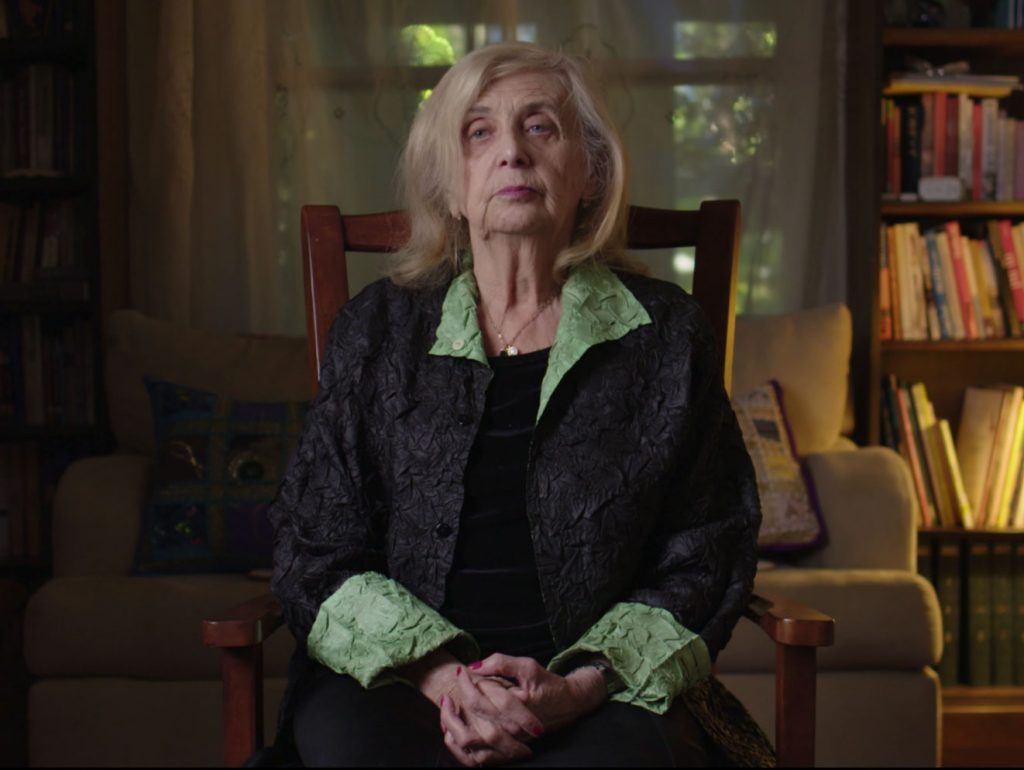
A Small Measure of Justice
The Luxembourg Agreements were the first of many attained to obtain a small measure of justice for Jewish victims of Nazi persecution and established key precedents in international law enabling victims of mass crimes to seek redress.
Photo: Tova Friedman, born in Gdynia, Poland survived Auschwitz as a young child, along with her mother. Tova receives a BEG pension from the German government as compensation for the suffering she endured during the Holocaust.
